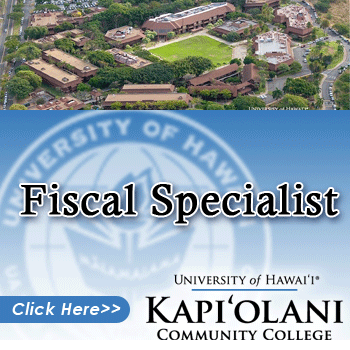President and Chief Executive Officer | Presidente y Director Ejecutivo (Programa de Inversiones y Prést
Job Description
Descripción general
La Iglesia Presbiteriana (EE. UU.)
La Iglesia Presbiteriana (EE. UU.) es la mayor denominación presbiteriana de Estados Unidos, con más de 1.1 millones de membresías. Cuenta con seis agencias nacionales y varias entidades que llevan a cabo diversas iniciativas ministeriales y que prestan apoyo a las iglesias y presbiterios en la realización de su ministerio tanto a nivel nacional como internacional. IP (EE. UU.) se ha comprometido a compartir el Evangelio de Jesucristo en todo el mundo, a la vez que defiende soluciones a una serie de problemas de justicia social, como la pobreza y el hambre, las personas sin hogar, el racismo, los problemas medioambientales y otros.
La Organización
En 1995, la 207ª Asamblea General de la Iglesia Presbiteriana ( EE. UU.) autorizó la formación de una corporación independiente sin ánimo de lucro para ofrecer inversiones y conceder préstamos a entidades presbiterianas de todo el país. Desde entonces, el Programa Presbiteriano de Inversiones y Préstamos (PILP) se ha convertido en un importante recurso financiero y de mayordomía para el pueblo presbiteriano y sus instituciones en todo el país.
PILP is a mission-driven organization that provides much-needed services at competitive rates for its borrowing congregations while offering a new dimension to stewardship for its investors. Total assets more than 126 million. Operationally, PILP supports growth in church mission and ministry by selling fixed and variable rate notes to Presbyterians and uses the funds to lend to Presbyterian churches and other related bodies for site acquisition, construction, renovation, energy efficiency, accessibility, disaster relief, capital lines of credit, safety and technology loans, refinancing, or an operating line of credit. Recognized as both a church extension fund and religious mortgage lending operation, PILP is registered to offer investments in every state.
Propósito del puesto:
The President and Chief Executive Officer provides leadership and strategic direction for all aspects of PILP, within the policies established by the Board of Directors and within the framework of applicable laws and regulations. PILP is a nonprofit, tax-exempt organization that operates an investment and loan program for Presbyterian Church (U.S.A.) (“PCUSA”) churches and related organization. This position unites a heart for mission and service with the skills of leadership and banking to create a unique opportunity to impact the mission and ministry of PCUSA churches and related ministries across the country. The President and Chief Executive Officer leads a staff responsible for the effective stewardship and growth of an organization with significant opportunity to impact the living church.
To be eligible for the position of Executive Director, a candidate must be an ordained deacon, ruling elder or teaching elder (clergy) of the Presbyterian Church (U.S.A.)
The President of PILP is elected to serve a four-year term subject to confirmation by the General Assembly.
Relaciones:
- CEO reports to the Board of Directors, made up of lay and clergy leaders from across the country, a number of whom have substantial backgrounds in banking and finance. The full board meets three times per year, but the CEO’s interactions with the chair and committee heads will be far more frequent.
- Manages a team of 12 through three key reports
- COO
- SVP, Sales & Marketing
- Tesorero/a
- Other key relationships include:
- The sister agencies of PC(USA)
- Leaders within individual churches, presbyteries, and synods
- Volunteer leaders committed to the success of the denomination.
- Current and prospective borrowers
- Current and prospective investors
Funciones y responsabilidades de los concilios
1. Overall strategy. Already widely respected as a faithful, effective steward of assets, PILP must revisit its core strategy along several lines, helping to shape answers to questions with which the board is already grappling:
- How do we define success for the Presbyterian Investment & Loan Program? Given generational changes in churchgoing (and church-building) and projected demand for traditional capital investment, how might—or how should—that definition change over the next decade?
- PILP’s market share of traditional loans today is about 20%, as the market is currently defined. How can we best leverage our track record of success, with a nearly .001% portfolio default rate, and convey our capabilities to the 80% we are not serving?
- How can we build on the strengths of our underwriting practices using enhanced technology to streamline our processes for clients, and investors, while streamlining efficiency for staff?
- Consistent with the endorsed risk profile and a prudent balance of assets and liabilities, how can we leverage our exceptional reputation for customer service and operational efficiencies to be of even greater service to clients, investors, and the church at large?
- What adjustments might the changing operating climate portend for our own governance—the board’s make-up and focus— and our relationships with other funding agencies of PC(USA)?
- In what ways can we inform a social justice and racial equity lens to define our lending strategy and practices to increase participation among diverse Presbyterian churches and prospective member investors? • How does PILP create a compelling investor prospectus to attract the capital required to meet the anticipated financial organizational requirements?
- How can the board and the CEO work best together to ensure optimal success and impact?
- How can we increase our appetite and tolerance for risk to develop an aggressive investment strategy that benefits from a more bullish approach to grow the PILP investment portfolio?
2. Brand awareness. PILP is rightfully proud of its reputation among its client and investor base, principally local individual Presbyterian members, churches and presbyteries, and the management team has made significant progress in carrying the message to the market over the past decade. Nevertheless, PILP is still too much of a well-kept secret. Rather than settle for the strong market share it has established from scratch over the past 28 years, the board and staff are committed to exploring new ways to expand PILP’s awareness and relevance among potential clients and their advisors. Fuller use of technology to enhance the power of relationships is likely one key, but a fresh look at markets, services and appetite for risk should provide a high rate of return.
3. Advantages. PILP has continued to generate surpluses, even in recessionary times, but profit pressures are real. The current inflated cost of loans in the traditional commercial lending market continues to create barriers and limitations for church congregations seeking to enhance their mission and outreach which require capital and operational investments. PILP’s current mix of assets & liabilities provide acceptable profit coverage to sustain the loan program. In order to achieve the desired future, PILP must maintain and even strengthen the operational efficiencies that serve stakeholders and constituencies so well now. With a renewed appetite for impact investing, the board is seeking a strategic financial leader who can implement an investment strategy that will continue to grow the investment portfolio.
4. Impact. PILP is an institution in service to a much higher cause, and with the strong foundation now in place, it could be an even more impactful force in the ever-changing Presbyterian Church (USA). No other resource available to PILP’s clients offers the expertise in operating finances and the acumen in lending that PILP does, and the collective capability for creative problem-solving is similarly unmatched. Just as local churches are experimenting with new ways to attract and serve members along their journeys of faith, so too must PILP leverage its own capabilities in creative ways to innovate, refresh and reimaging its impact and relevance.
Requisito
The ideal candidate to lead the Presbyterian Investment & Loan Program through its next phase will be a savvy Presbyterian leader who balances business, financial and managerial acumen with a commitment to expanding the church’s reach and relevance.
In addition to exhibiting unchallenged integrity and demonstrated affinity for PILP’s objectives, the ideal candidate will offer many of the following assets, among others:
- A visionary leader who offers the discipline of understanding market nuances, while embracing innovative and creative responses to the transformative Presbyterian Church. • An entrepreneurial attitude in the guise of a thoughtful, caring but assertive business leader who is nimble, agile, and willing to lead change.
- An innovative executive steeped in relevant financial worlds (financially literate but not necessarily a technical expert).
- A proactive, collegial manager who thrives by establishing close working relationships with PILP’s clients, staff, stakeholders and board members and their peers in other units of the Presbyterian Church (i.e., the General Assembly, sister agencies and regional counterparts) proven competency in the best sort of community building.
- A leader who brings high emotional intelligence able to motivate, inspire and encourage the team. Establishing an atmosphere of transparency, mutual respect, equity, and accountability for the organization.
- An appetite for learning, an affinity for listening, and a habit of leadership.
- A passion for continual improvement, both personal and organizational.
- A board-savvy executive who can contribute meaningfully to the development, focus and impact of PILP’s board.
- A compelling advocate for PILP’s mission in a variety of media; strong speaking and writing skills.
- A record of building best practices to increase organizational efficiency and effectiveness.
- An advanced degree in fields relevant to the PILP’s mission such as law, finance, or business administration. Significant managerial experience in banking, wealth management or related services would be a significant plus.
- Demonstrated respect for diversity of opinion, perspective and experience combined with the ability to harness that diversity in pursuit of shared goals.
PILP is a very business-oriented agency of the Presbyterian Church (USA), and the best candidates will reflect a deeply ingrained commitment to the church and a facility for navigating its matrixed leadership, multiple operating units and the sometimes-overlapping initiatives and programs.
de la salud y la atención médica.
Work Location: The Presbyterian Investment & Loan Program is headquartered in PC(USA)’s national headquarters building on the waterfront in Louisville, Kentucky, and the successful candidate will be required to live in the greater metropolitan area. Because PILP’s clients and stakeholders are located across the country, significant travel is a necessary part of the responsibilities. Louisville is home to the annual Kentucky Derby Festival and to such major entities as Humana, YUM Brands (parent of KFC, Pizza Hut, and Taco Bell), Brown & Williamson, Brown Foreman, the University of Louisville and the Louisville Presbyterian Theological Seminary. It is a city with an active cultural life, including the annual Humana Festival of New American Plays, the Louisville Ballet and Jazz Fest.
Creemos que una vida equilibrada, con tiempo para el trabajo, el ocio y la crianza espiritual, nos hace colegas más saludables y productivos en el Centro Presbiteriano.
La Iglesia Presbiteriana ( EE. UU.) ofrece un paquete de beneficios competitivo para los empleados, incluyendo seguro médico, dental, plan de pensiones, incapacidad a corto y largo plazo, programa de asistencia al empleado (EAP), cuentas de gastos flexibles, plan de ahorro para la jubilación 403(b), días de vacaciones, días de enfermedad y días festivos pagados.
Nuestra fe en Dios inspira nuestro compromiso con los valores de diversidad, equidad, inclusión y pertenencia y se basa en las Escrituras, la Constitución de la Iglesia Presbiteriana (EE.UU.) y las acciones de la Asamblea General de la Iglesia Presbiteriana (EE.UU.).
La Iglesia Presbiteriana (EE. UU.) se compromete a ser no solo un empleador con igualdad de oportunidades de empleo según lo define el gobierno de
EE. UU. pero con la inclusión de la identidad de género y la orientación sexual también.
Se anima que postulen candidatos de las comunidades presbiterianas del sur global y de otras históricas comunidades presbiterianas de razas no blancas,
preferiblemente con formación teológica y fluidez en otros idiomas además del inglés.
*Please mention you saw this ad on LGBTInHigherEducation.*





